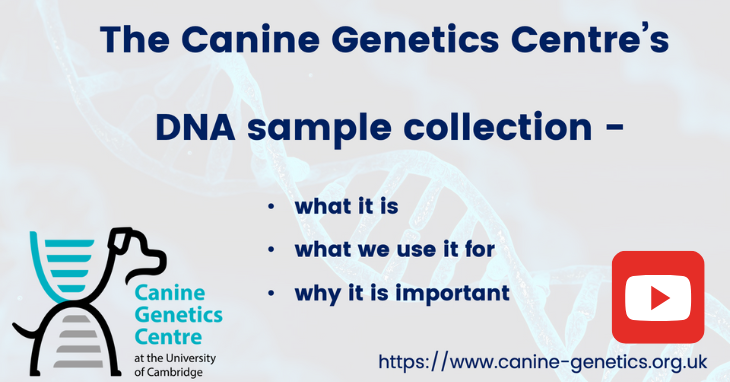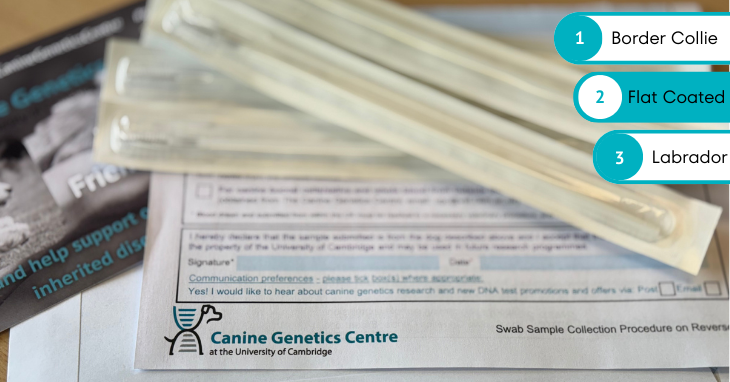
This week we turn our attention to another of our valuable team members, our Bioinformatician and “crazy dog lady”, Ellen Schofield. Ellen joined our group back in 2016 when we were still based at the Animal Health Trust and moved with the team to Cambridge in 2021. We talked to Ellen about her work, and learn about how she came to find a job that, simply put, seems made for her! Continue reading


 A couple of weeks ago Bryan gave you an overview on our
A couple of weeks ago Bryan gave you an overview on our  The CGC’s research database currently consists of 41,717 samples from 215 dog breeds collected since the early 1990s for the purpose of tackling inherited canine diseases. Roughly three quarters of sample contributions have come from UK-based donors, and the remaining quarter from 46 countries around the world. Alongside the data generated by the group over the years, our sample collection is a key resource that enables researchers to determine genetic variants responsible for heritable diseases in dogs.
The CGC’s research database currently consists of 41,717 samples from 215 dog breeds collected since the early 1990s for the purpose of tackling inherited canine diseases. Roughly three quarters of sample contributions have come from UK-based donors, and the remaining quarter from 46 countries around the world. Alongside the data generated by the group over the years, our sample collection is a key resource that enables researchers to determine genetic variants responsible for heritable diseases in dogs. 
